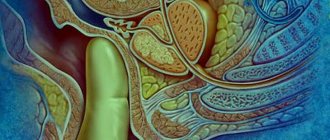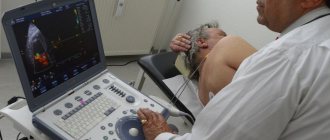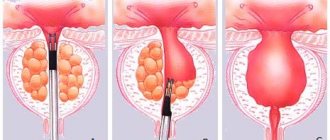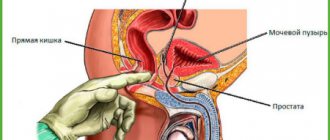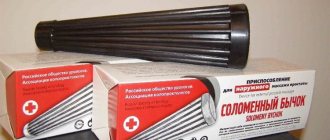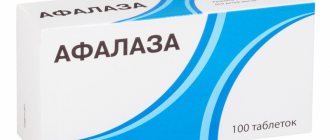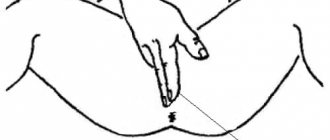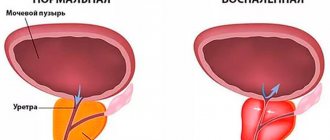treatment in Israel
Why do patients from the CIS countries choose Service Med?
collapse
- communicate in Russian
- we consult for free
- we select the best highly specialized specialist
- book tickets
- we book accommodation
- we issue an invitation
- we provide transfer
- we work without prepayment
- We make payments to the clinic cash desk at clinic prices
- we organize excursions
find out service packages and their costs
You are here: Home→Urology in Israel→
: get a free consultation with a doctor about your issue
Prostate pathologies are a problem for men of all ages. Their presence causes discomfort and pain, and often leads to irreversible consequences. Treatment of prostate cyst in Israel
with ServiceMed is an effective way to restore your health!
In healthy tissues, under the influence of certain factors, the formation of pathological cavities from fibrous tissue, filled with a yellowish or brown liquid that has a viscous consistency, can occur. A similar cavity is a prostate cyst.
. In men, this pathology occurs quite often. In some cases, prostate cyst symptoms may not appear. To learn more…
Often, the signs of pathology do not differ from the symptoms of prostatitis. These include pain in the groin area, which radiates to the back, as well as urinary dysfunction. It is important not to ignore such signs and undergo an ultrasound examination, which will help identify their cause.
Risk factors
A prostate cyst in men can develop for the following reasons:
- inflammatory diseases;
- benign prostatic hyperplasia;
- obstruction of the ejaculatory duct;
- prostate atrophy;
- tumors.
There are also factors that increase the risk of this tumor:
- excessive production of prostatic secretions;
- too frequent or too infrequent sexual intercourse;
- harmful occupational factors, such as work involving heavy lifting;
- passive lifestyle;
- pelvic injuries or unsuccessful surgeries;
- frequent stress;
- alcohol abuse.
Features of treatment
In some cases, the consequences of a prostate cyst
can be quite heavy. In particular, as a result of infection, suppuration occurs in the cyst cavity, and it turns into an abscess. Particularly large pathologies can trigger the process of atrophy of gland tissue.
Treatment tactics for prostate cysts in Israeli hospitals are determined based on the results of diagnostic tests. Small formations that do not cause discomfort do not need to be removed. However, in such a case it is necessary to constantly monitor
see a doctor, preventing possible negative changes.
drug treatment for prostate cysts quite effectively.
in Israeli clinics. In this case, it is very important to establish the root cause of the development of pathology. It is its elimination that is the main task of the conservative course.
According to reviews of the treatment of prostate cysts in Israeli centers, patients agree that the technique of puncture aspiration of the cyst
. Today, the safety of the technique is ensured by the use of ultrasound control. In this way, it is possible to accurately direct the needle to the center of the formation without accidentally damaging nearby anatomical structures.
Despite obvious successes in the treatment of this pathology, doctors continue to look for new ways to treat prostate cysts. Israeli medical centers, in particular, have recently begun to use slerosis
, that is, gluing the walls together by introducing a special drug.
However, gentle techniques do not always eliminate pathology. In such cases, patients are indicated for surgical treatment, the method of which is selected depending on the location, characteristics and size of the formation. We are talking about the choice between perenial and transurethral methods of surgery.
. To learn more…
At the moment, patients are fully satisfied with the wide access to innovations and reasonable cost of treatment for prostate cysts in Israel. Even the use of such advanced technology as laser enucleation does not significantly increase the cost of treating prostate cysts in Israel.
3. Symptoms, diagnosis
As stated above, a small prostate cyst may be completely asymptomatic; in this case, its presence is established, as a rule, by chance, during an examination carried out for other indications.
In other cases, the classic symptoms of a prostate cyst are:
- certain urinary disorders (frequent urge, difficulty starting, weakening of the stream, imperative need to go to the toilet at night, etc.);
- violations of erectile and/or ejaculatory functions (weakening of erection, premature ejaculation, some discomfort during ejaculation, complete impotence);
- somatic discomfort (low-grade fever with corresponding malaise, nagging pain in the perineum.
It should be noted that all these symptoms are not pathognomonic signs of a cyst, i.e. may also occur with other anomalies, pathological processes and syndromes. In addition, a much more pronounced and sometimes dangerous clinical picture is created by abscess formation of the cyst due to infection, traumatic ruptures and perforations, blocking of the urethra by a growing cyst or its bulging into the rectum.
The standard for diagnosing prostate cysts is ultrasound (modified by TRUS, i.e. with transrectal access), computed tomography, digital examination of the prostate. If a clarifying and/or differential diagnosis is necessary, laboratory tests of biological fluids (blood, urine, semen, prostate secretions), puncture followed by histological analysis of the contents of the cavity may be prescribed.
About our clinic Chistye Prudy metro station Medintercom page!
Questions from our patients
- How to avoid recurrence of cysts?
Certain recommendations, although they cannot completely guarantee the prevention of relapse, will ensure that risks are minimized. It is not advisable for men to lift weights with a full bladder, abuse alcohol and coffee, ignore the urge to urinate, and delay treatment of infectious diseases. In addition, the best way to prevent any disease is periodic diagnosis. Prostate cyst is no exception in this regard.
- Is it possible to get rid of a cyst using absorbable drugs?
No, such drugs do not exist. In the case of using drug therapy for prostate cysts, we are talking about controlling its growth and eliminating the cause of its occurrence.
- How dangerous is it to not treat a prostate cyst?
Having a prostate cyst is a serious health threat. Suppuration and rupture of the cyst can lead to the spread of its contents into the urethra, bladder and surrounding tissues in the pelvic area. Also, significant harm can be caused by the cyst squeezing the vessels feeding the prostate gland. The result of such a pathological process is atrophy and dysfunction of the gland.
2. Reasons
Prostate cysts are divided by origin into congenital and acquired. Congenital cysts are much less common (8-10% of the total volume of diagnosed prostate cysts) and, as a rule, are larger in size. Such a cyst is caused by improper intrauterine development of the organ; in turn, the cause of abnormal formation of the prostate, with internal cavities, can be any of the factors unfavorable for gestation in general (although the exact etiopathogenesis of a congenital prostate cyst has not been established).
Acquired cysts, therefore, are a much more common consequence of all sorts of hazards and diseases accompanying the life of an adult man. Most often, an acquired prostate cyst is retentional in nature, i.e. caused by certain disturbances in the outflow of prostate secretions. Another common cause is hypersecretion, i.e. excess production of the prostate fraction.
Risk factors that significantly increase the risk of cyst formation in adulthood include:
- the presence of adenoma (hyperplasia, benign growth) of the prostate gland;
- irregularity of sexual life (complete absence or infrequency of contacts, which inevitably leads to stagnation, or, conversely, too frequent sexual excesses);
- some types of professional activities (especially those associated with exposure to vibration and heavy lifting);
- alcohol;
- systematic hypothermia.
Visit our Proctology page
Benefits of treatment with ServiceMed:
- Extensive capabilities for reliable diagnostics
- Application of the latest pharmaceuticals and treatment methods
- Priority of gentle operating techniques
- Long-term medical supervision programs
- A full range of the most popular holiday services
ServiceMed will help you regain your precious men's health!
Find out everything about the cost of treatment for prostate cysts in the best medical centers in Israel
Jacques Baniel, professor, urological surgeon, Assuta Clinic, Beilison, ServiceMed specialist, author of unique operating techniques
What are the main qualities for a good surgeon? Experience, skill, eye-hand coordination - it all makes a difference! But the main thing is professionalism...
Would you like to consult with Professor Jacques Baniel?
No
Please fill out all fields of the form and we will contact you shortly
Receive a treatment plan and prices for free by filling out the form Specialists in the field
- BiographyOnline consultation
Prof. Jacques Baniel Urology. Urological surgery. Oncology - BiographyOnline consultation
Dr. Raanan Tal Urology. Urological surgery
- BiographyOnline consultation
Prof. Lifshits David Urology. Urological surgery
Detailed description of the study
The study of prostate secretions is used to determine pathologies of the prostate gland.
The secretion of the prostate gland is a biological fluid that is part of semen. Necessary for the normal functioning of sperm outside the male body (preserving their motor activity and fertilizing ability).
The study of prostate secretions includes determining:
- consistency;
- colors;
- transparency;
- cellular composition of biological fluid.
The study of the cellular composition of prostate secretion is aimed at detecting fungi, leukocytes, erythrocytes, epithelial cells, trichomonas and other microorganisms. Microscopy is important for the identification of lecithin grains, amyloid bodies, macrophages, cholesterol crystals and Trousseau-Lallemand bodies.
The biomaterial used for research is the secretion of the prostate gland, which is placed in a dry and sterile container with a volume of 3–5 ml. Since, due to the anatomical location of the prostate, the procedure is quite complex in terms of execution, urine is allowed to enter the biomaterial.
References
- Vorobiev A.V. Prospects for prevention, diagnosis and staging of prostate cancer / A.V. Vorobyov, P.I. Krzhivitsky // Practical oncology. – 2008. – No. 9 (2). – pp. 71–82.
- Kurbatov D.G., Kuznetsky Yu.Ya., Algorithm for diagnosing chronic prostatitis/chronic pelvic pain syndrome. file:///C:/Users/1/Downloads/8530-13448-1-PB%20(2).pdf
- Anderson RU, Weller C. Prostatic secretion leukocyte studies in nonbacterial prostatitis (prostatosis). J Urol 1979; 121: 292–294.
- McNaughton Collins M., Stafford R., O, Leary M., Barry M. How common is prostatitis? A national survey of physician visits. J Urol 1998; 149: 1224—1228.
- Naber KG EUA Guidelines on urinary and male genital tract infections.2002. P. 49-55.


